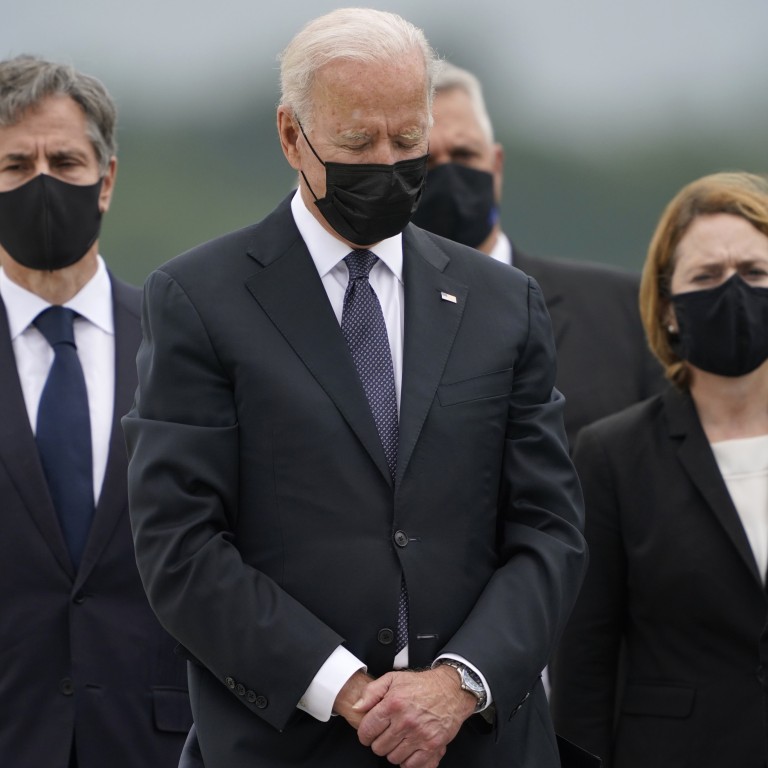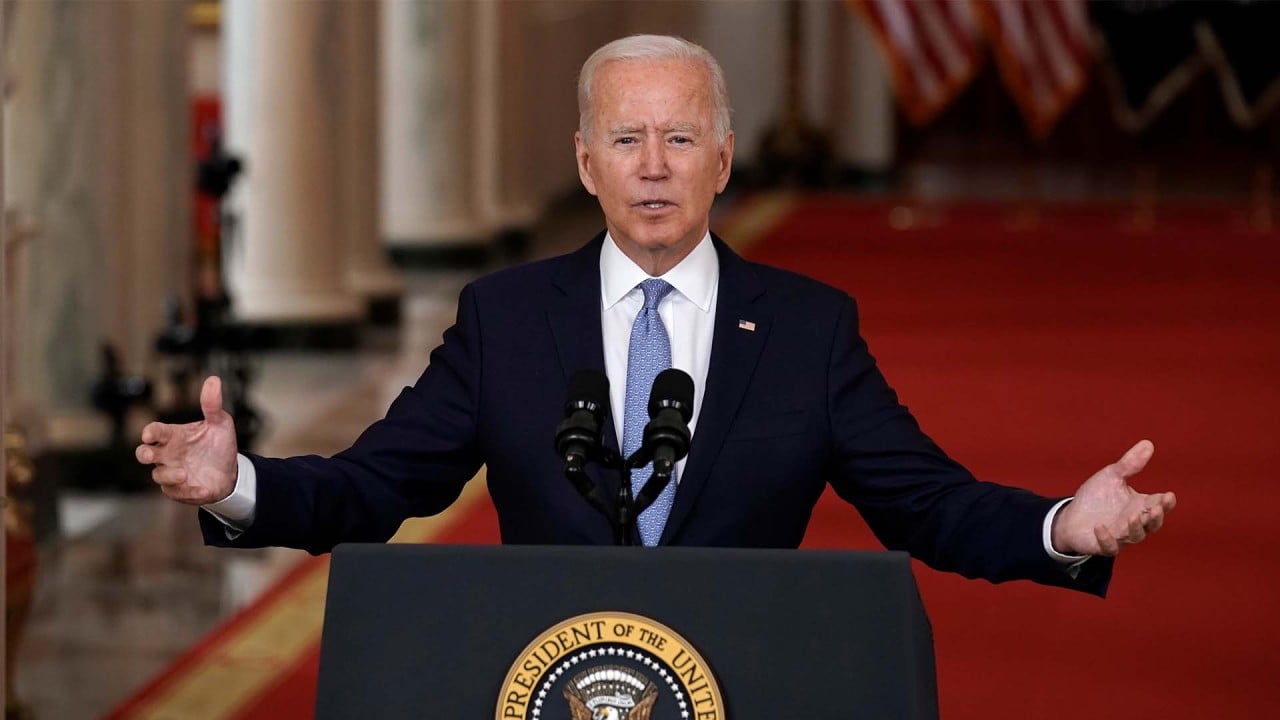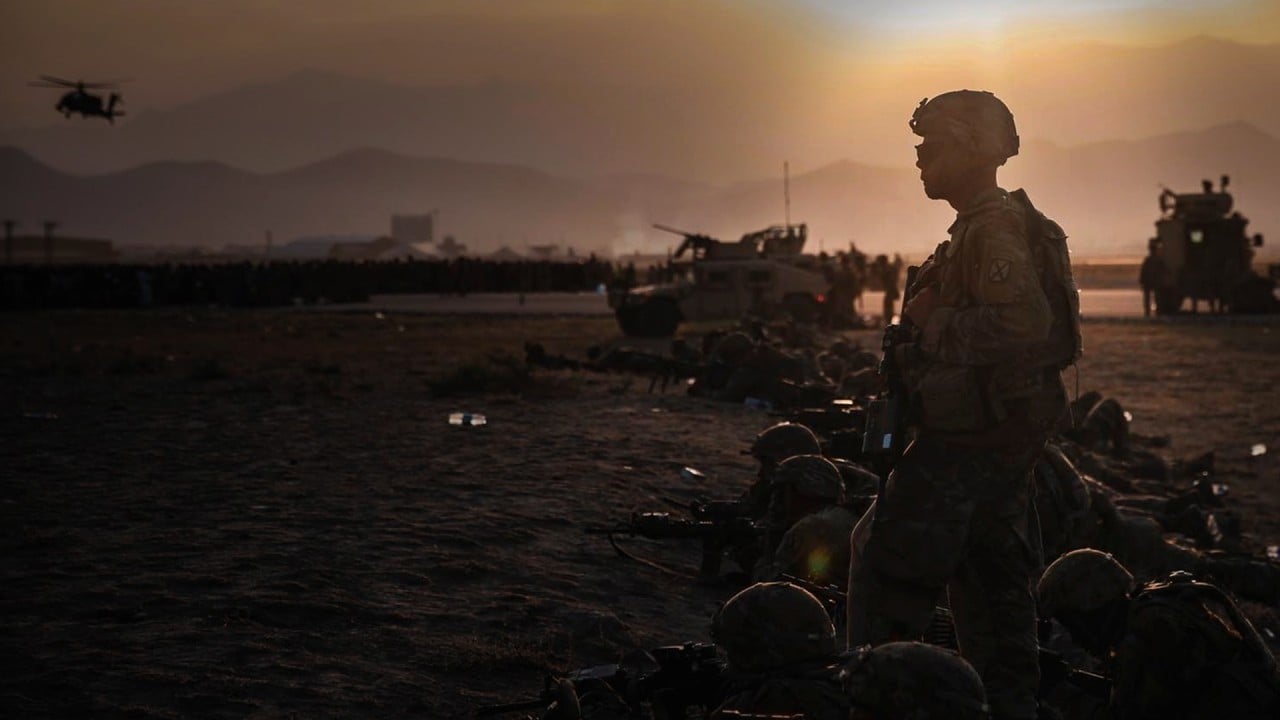
For all of America’s faults, its retreat from the world is not good news
- Stung by the Afghan war, the US will turn isolationist after a century of globalisation. This will cost the world its economic growth and, more importantly, put peace at risk
Many foreign observers of the United States ask a similar question of it to the one posed in the famous Monty Python comedy sketch: “What have the Romans ever done for us?”. The answer: “Nothing”. Er, except for “the aqueduct”, “the sanitation, the medicine, education, wine, public order, irrigation, roads, a freshwater system, and public health”. You get the picture.
Late 20th-century America, like the Romans, brought peace, and along with the American way of life, internet technology, Disney, streaming, GPS, an open economic system, and a massive consumer-fuelled debt that was the engine of the world’s economy for six decades.
It was only when I lived in the US that I realised that many citizens don’t have passports. International news in America is what happens to US citizens abroad. Huge swathes of the country don’t ever have to worry about the rest of the world.
America is just too big, too self-contained, and the pleasures and perils of life come to people without them having to be bothered by the rest of the world.
This is not the case in Sweden, Holland or Switzerland. If you are having breakfast in a hotel in Switzerland, the waiter will address one table in German, another in English, a third in Italian and a fourth in French. As a Swiss, you cannot but be aware of the outside world.
The US should be better than this. It has a free market in news, and many Americans are extremely well travelled and culturally savvy but, for most citizens, there is no real need for anyone else.
Unfortunately, America’s Middle East expedition, ending with the exodus from Kabul, will lead to an isolationist US after a century of globalism. Twenty years in Afghanistan, with thousands of Americans dead, tens of thousands injured and trillions of dollars spent mean the US will not intervene any time soon.
The US has periodically acted as the global policeman, with a strategy of stepping on badly behaved leaders and hoping to depart quickly, leaving a settled society – and a version of “American values”.
But those strong isolationist tendencies have never gone away and will remain for the duration. This is not to say that, if the US feels threatened in the long term by other powers, it won’t get involved, but the default is now to stay at home.
Globalism has done much to develop the world economy in the past 50 years but this “mine is mine and yours is yours” environment is a bleak outlook for investors. The strict Covid-19 travel restrictions have set the scene for continued tough immigration and visa restrictions.
For the past few centuries, starting a better life elsewhere has been possible for many, and has been a win-win for all. The old easy frictionless borders allowed people to get to know each other in other cultures and systems, making them richer as people, and in their pockets.
At least we have had a phase when globalism ran alongside mass use of the internet and that will temper the immediate commercial disadvantages of isolationism. Covid-19 has shown that doing business and getting to know people in far-off lands is possible even when working from home.
A general move back to domestic markets is unlikely – more likely is an increase in domestic manufacturing of higher added value or national security products, with mass manufacturing of components still done offshore. Home markets could well see an increase in the assembly of cheap basic components made elsewhere.
This favours small manufacturing and knowledge companies, both listed and private, in a wider range of domestic markets. It will be harder to make money from a stock market index. Only the most assiduous investors will have time to identify the opportunities – maybe it will just be easier to buy into a fund.
This cross-border friction means we can begin to say goodbye to economic growth. Inflation and the creation of money by the central banks will keep some favoured equities buoyant.
The biggest loss will be that, with less movement among the peoples of the world, there will be less understanding of why things are done differently – and unlike with the Romans, this is unlikely to lead to peace.
Richard Harris is chief executive of Port Shelter Investment and is a veteran investment manager, banker, writer, broadcaster, and financial expert witness




